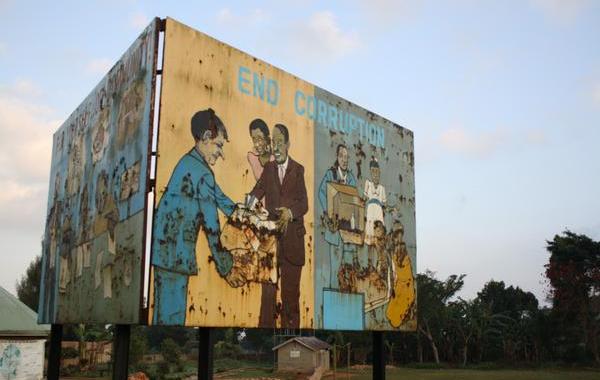What if development, as we knew it, was inherently bad?
I have not written on this blog for quite awhile, because I was reading. It was the first book I have read since college, and it was a dense, long-winded one: Fr. Gustavo Gutierrez’s “A Theology of Liberation.”
Gutierrez’s basic argument is that truly Christian theology that is authentically practiced as the Gospel advocates will undermine the unjust status quo, reversing every form of injustice, servitude, alienation, and oppression.
While reading this book, I was struck by how many times it seemed appropriate to replace “Latin America,” his own continent which he writes about, with “Africa.” Later, I will write more on the themes of this book and how they inform Solidarity Uganda‘s work. (The content of the book warrants at least one blog per chapter….seriously.) For now, I just want to summarize Gutierrez’s historical explanation of how “development” came to be what it is today, and why it has generally reinforced an unjust social order from which the dominant groups in this world benefit most, and at the expense of the weak. (By the way, I don’t think “development,” whatever we claim that to mean, is inherently bad.)
Gutierrez prefaces his discussion on the concept of development by noting:
The poor countries are not interested in modeling themselves after the rich countries, among other reasons because they are increasingly more convinced that the status of the latter is the fruit of injustice and coercion…poor countries are…[attempting] to achieve a more human society.
Who Invented Development?
The term is ambiguous, just like “democracy,” “terrorism,” “justice,” or any other intangible concept. But just like these concepts, it can result in tangible ideas. One might argue development has always existed, because human beings have always been creating. Others might argue it has always existed because human have always been pursuing a deeper individual and collective consciousness. Generally, people have different understandings of what development is, and these understandings are largely begotten of their economic, political, and cultural contexts.
The popularization of “development” concerns the term’s relation to economic growth. Joseph A. Schumpeter was “the first economist after the English classics and Marx to concern himself with long-term processes.” For him, capitalism was a circular, repetitive system that could not be structurally changed except through innovation, meaning technological advances that may have socio-political consequences. This process, translated today as “development,” is called Entwicklung, which apparently is more accurately translated as “evolution” or “unfolding.” (Gutierrez comments later in his book on evolution versus revolution.)
Schumpeter’s ideals are still championed today by the simple distribution of more current forms of technology. In other words, these are charitable programs which distribute, say, laptops, but with no regard to enhancing communal “access” to technology. The main goal is for someone to obtain the technology and excel within the structure of the prevailing system, such as making more income, getting a college degree, or finding a job. It is upward mobility on the system’s terms, but does not necessarily result in a more human existence.
Australian economist Colin Clark contributed that wealth is not the goal of economic activity; well-being is. His measurement to determine whether a country had a significant level of well-being was largely dependent on this country’s level of industrialization, which he called “progress.” Of course, we are all aware of the shortcomings of industrialization and its ecological, economic, social, and even spiritual after-effects.
The Bandung Conference of 1955, which included many Asian and African countries, served the purpose of announcing the unacceptability of underdevelopment, but people argue whether or not significant concrete action resulted from this meeting, in which retaliation toward both capitalist and socialist world economies was evident.
As you can see, the first meaning associated with development is economic growth, such as a country’s GDP or per capita annual income. The economic development of England drove economists toward this idea. Today, most people don’t think development is this unilateral, but the viewpoint exists in a subtler form in the capitalistic view of development.
Deficiencies in the aforementioned economic definitions of development have led folks to view development more as a total social process, including interdependent social, political, economic, and cultural factors. Social scientists have largely agreed that the dynamics of world economics have resulted in more wealth for the few and deeper poverty for the many.
A type of humanistic perspective of development has also arisen, in which Francois Perroux and others have been concerned with an ethical dimension, resulting in a revamped definition of development: “The combination of mental and social changes of a people which enable them to increase, cumulatively and permanently, their total real production…[preparing] the way for reciprocity of consciousness.”
This perspective allows us to situate “development” in a place where humankind takes control of its destiny. This type of comprehensive human approach is known as liberation by many proponents of holistic human and community development.
Popular international development initiatives, in which poorer countries essentially competed for the charity of powerful countries, were very popular in Latin America and elsewhere in the 1950s. But this type of developmentalism did not attack the roots of evil and therefore failed at its objective and succeeded at further dividing rich and poor. This is because “changes…were to be achieved within the formal structure of the existing institutions without challenging them.”
Through the proxies of international organizations affiliated with groups and governments controlling the world economy, great care was taken not to subvert the interests of international economic powers and their localized allies. Development became notorious as deliberate hegemonic subjugation. It was counterproductive for achieving true transformation in places where basic needs and rights were much less available. In Latin America (and elsewhere), a consciousness that underdevelopment is a by-product of the industrializing of other nations rose to the social foreground.
Back to liberation. Liberation as it relates to development must subvert the root causes of economic, social, political, and cultural dependence. This includes transforming such things as the private property system, power-relations, predatory lending, and kleptomaniac government.
In my view, the term “development” is not only ambiguous; it also comes with too much baggage. I favor abandoning the term altogether. When an organization claims to engage in “development,” I have no clue what that means, or whether it is a net gain or loss for the communities in which it operates. Yet somehow potential donors appreciate such a claim, perhaps due to its paternalistic and somewhat colonial-like triumphalist ring.
On Not Being an Orphanage
Many Americans assume Solidarity Uganda is an orphanage. Perhaps this is due to the many Compassion International and World Vision advertisements they have seen, projecting the idea that nonprofit work in Africa is fundamentally about parentless youth. Maybe they actually know that Uganda is one of the world’s youngest countries, with a very high birth rate. Whatever their reasoning, it seems I cannot get some people to understand that we are not an orphanage.
Ugandan orphanages are something my wife Suzan could rant about for hours, but we will spare you. I only bring up the concept of orphanages to illustrate the idea of development vs. liberation.
Orphanages largely fall within the ambiguous modern idea of development. The idea is that there are a lot of orphans, so human beings need to care for them (i.e. fund, staff, and construct more orphanages). This is true (although the vast majority of Ugandan children in orphanages have at least one living parent). However, liberation work would argue that the best way to care for orphans is to systemically eliminate the need to build, organize, and fund so many orphanages – to reduce the number of orphanages necessary. This always requires a political dimension (not a synonym for “legislation”) which threatens the status quo from which the oppressors benefit.
For example, the international funding and monetary aid for health care frequently gets embezzled by political elites in Uganda, but if more parents had access to basic health care, more parents would survive, and less orphanhood would result. So by initiating a campaign against corruption as THIS UGANDAN VIDEO advocates, the problem, whatever it may be (in this case parentless children), is more effectively conquered. This is a true manifestation of what it means to “love one’s neighbors.”
This is one small example of the necessary shift from developmentalism toward liberation work, and how this shift is necessary for true holistic development. To continue our naive charity is to perpetuate injustice.
I use this example because oppression disproportionately affects the most vulnerable demographics of a community or country (orphans, in this case), and the example relates to my own country, which supplies funding to Uganda through the government (your taxes), churches, and nonprofits. Such money often goes unaccounted for, and falls into the hands of the greedy.

UG Prime Minister purchases posh car with development funds, causing EU to suspend aid. US aid continues due to corporate and Pentagon interests.
Can you think of any other ways we can disrupt the cycles of dependency and oppression to systemically enhance development efforts…or liberation work…or whatever we choose to call it?


Philip, i thank God for you, you came to Uganda with the heart of God. may God bless you.
surely many people in uganda are suffering only that most of the people who recieve the funds to help the vulnerabes misuse it causing the donas to withdraw the funds. Let us work together in the name of Jesus to fight that.